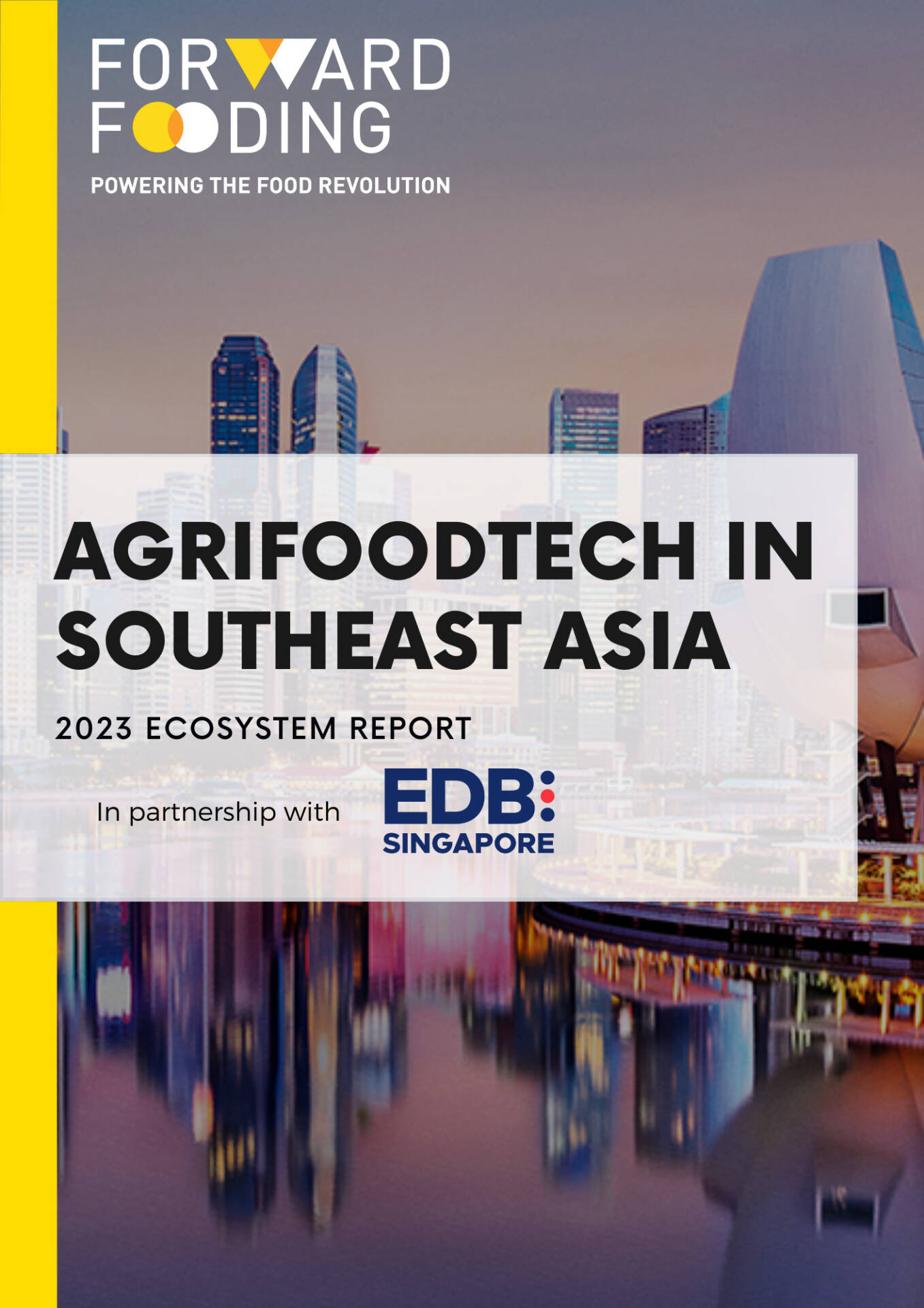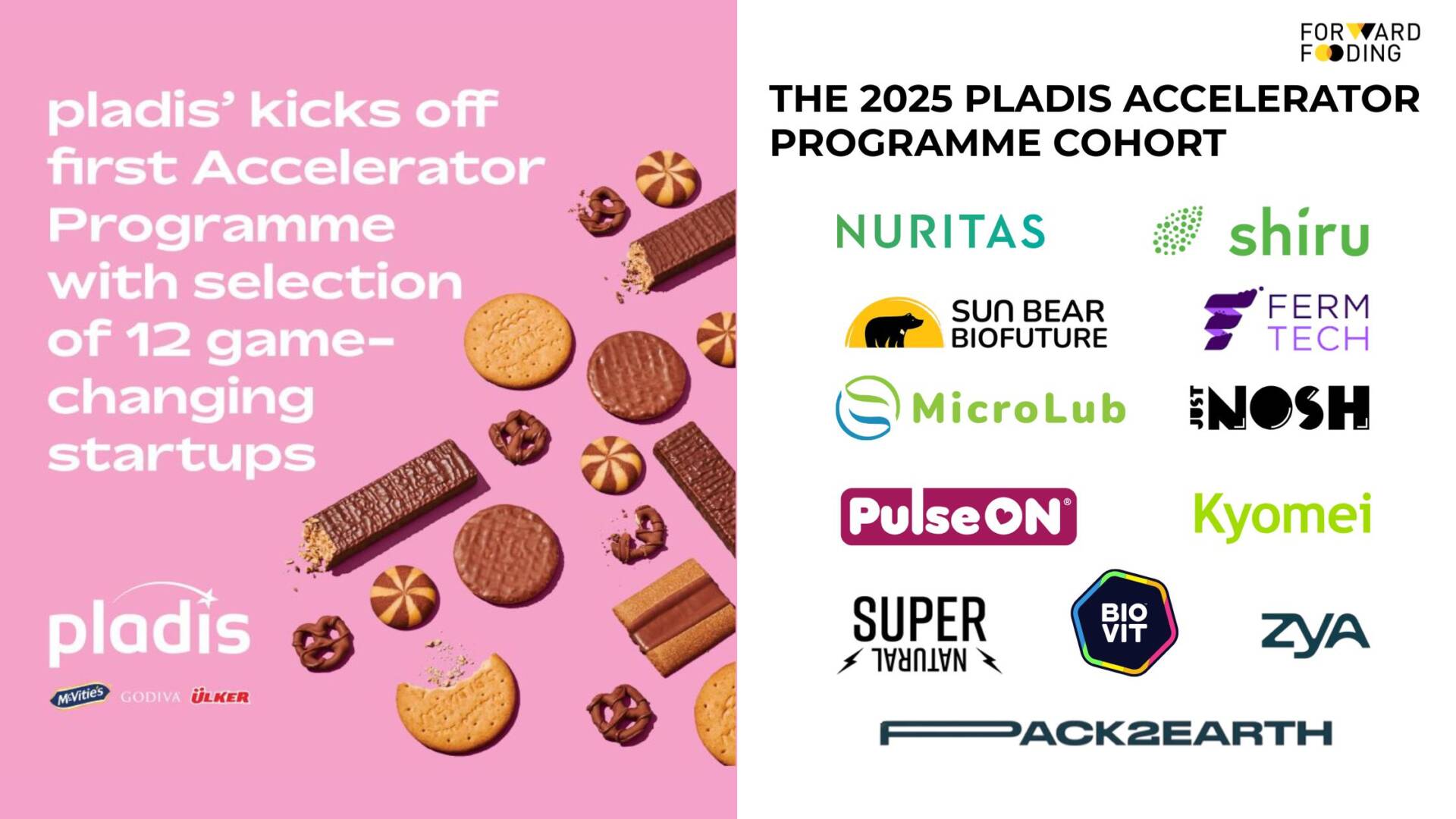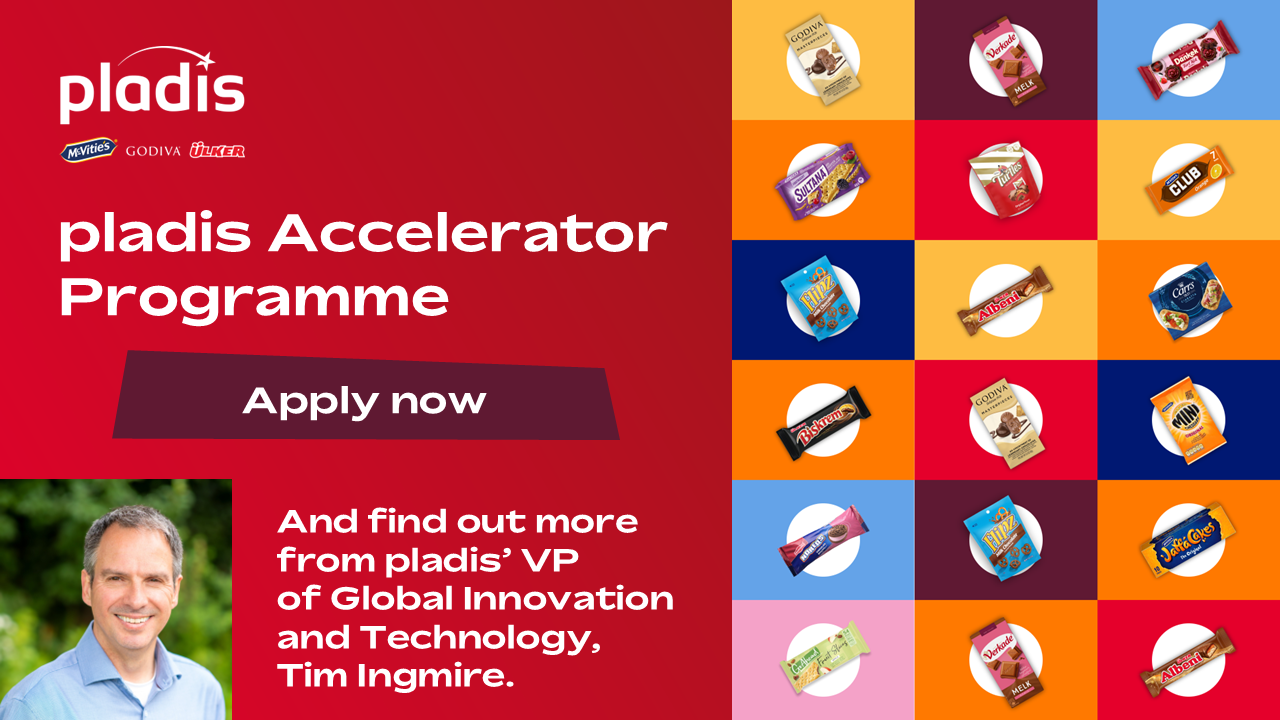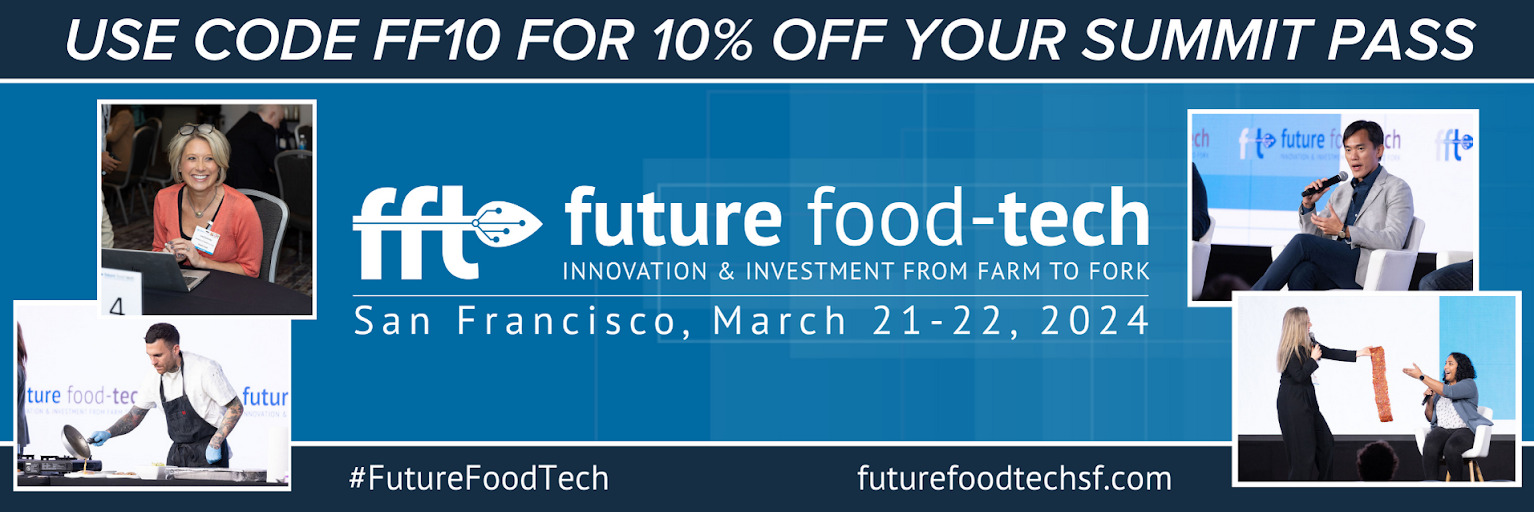FORWARD FOODING
THE BLOG
Crumbling the Barriers: New Report on How Upcycling Transforms European Retail Food Waste
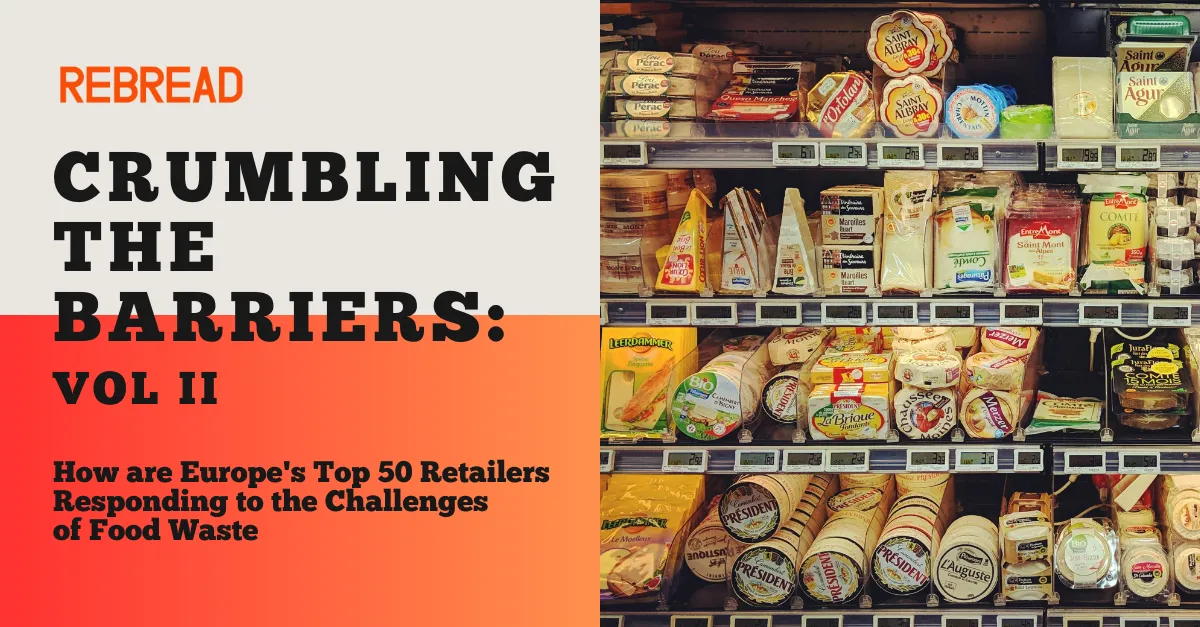
Food waste remains a significant challenge within the retail sector, particularly with bread and bakery products. However, a new industry report, “Crumbling the Barriers Vol. II” by Rebread – a company recognized in the FoodTech 500 Ranking – sheds light on how 50 leading European retailers are confronting this issue with innovative strategies and a growing focus on upcycled foods.
The report emphasizes that while many retailers prioritize redistribution, the actual reporting of food waste often lacks consistency, making industry-wide comparisons difficult. Despite this, a clear trend is emerging: upcycled foods offer a promising solution to reduce waste, repurpose surplus food, and create sustainable product lines, aligning perfectly with the shift towards circular food systems we’ve highlighted previously. This focus on maximizing resource efficiency and minimizing environmental impact through upcycling is a key characteristic of the “Wave 3.0” of FoodTech innovation.
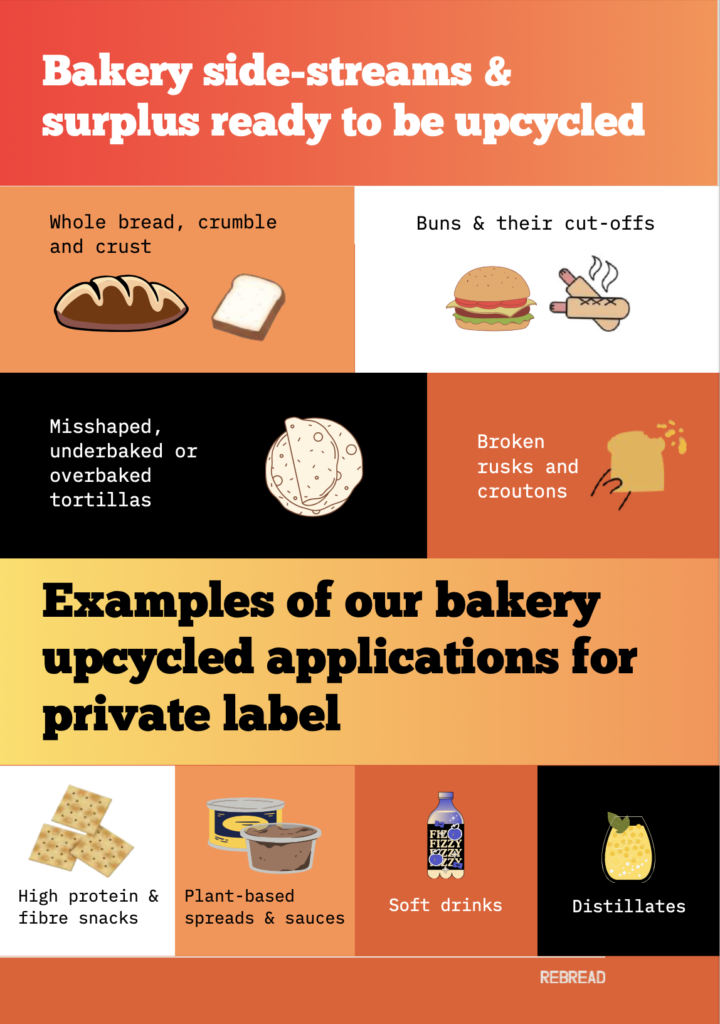
Key Insights from the Report:
- Retailers as Catalysts for Change: The report highlights that retailers are uniquely positioned to drive systemic change due to their central role in the supply chain. Their purchasing decisions, inventory management, and influence on consumer choices can significantly impact food waste outcomes.
- The Power of Upcycling: Upcycled food, defined as edible ingredients that would otherwise go to waste but are repurposed into new products, is gaining traction. This includes food-processing by-products, surplus farm produce, or aesthetically imperfect food. Rebread, for instance, works with retailers to integrate surplus bread into new products like bakery items and beverages.
- Leading Examples in Action:
- ALDI Nord Group has implemented diverse upcycling initiatives, including transforming surplus bread into dumplings in Germany and craft beer in Portugal, as well as processing unsold bread into animal feed in the Netherlands.
- REMA 1000 in Norway has set an ambitious target of 80% food waste reduction by 2030 (compared to 2015 levels) and has significantly reduced the volume of returned bread by 315 tonnes in 2023.
- Tesco utilizes surplus bread for craft beer, olive crostini, and bread pudding, and even for insect farming in Hungary. They also demonstrate a strong commitment to transparency by auditing their waste management partners.
- Rohlik Group has established Europe’s first permanent upcycled product category in Czechia, featuring beverages, bakery items, long-life foods, frozen products, and cosmetics. Their online model and use of AI for demand planning have helped them achieve a remarkably low food waste rate of 0.5% of sales.
Addressing Challenges and Seizing Opportunities:
Despite the clear benefits, some retailers remain hesitant due to concerns over supply chain integration, costs, and consumer perception. However, Rebread’s successful partnerships demonstrate that upcycled products can be both profitable and scalable.
The report highlights that reducing food waste translates into significant financial benefits. For example, UK retailers under the Food and Drink Pact saw an 8% reduction in food waste, saving nearly £62 million. Moreover, upcycling creates new revenue streams and reduces disposal costs.
“One of the circular food innovations showing the most momentum is the upcycling of food waste into high-value ingredients. This approach not only reduces the environmental footprint of food production but also opens up new revenue streams for food manufacturers, creating strong economic incentives.” – Max Leveau, Co-founder & COO at Forward Fooding
He further states that upcycling integrates “relatively seamlessly” with existing supply chains, making it a highly practical solution.
Upcoming EU regulations, including the revised Waste Framework Directive with binding food waste reduction targets, will further drive the adoption of upcycling solutions. By investing in upcycled products now and collaborating with innovators like Rebread, retailers can gain a competitive advantage, enhance consumer trust, and align with their sustainability goals.
Download the Full Report
For a comprehensive understanding of the strategies, challenges, and opportunities in food waste reduction and upcycling across Europe’s top retailers, we invite you to download Rebread’s “Crumbling the Barriers Vol. II” report.
Forward Fooding is the world’s first collaborative platform for the Food & Beverage industry via FoodTech Data Intelligence and Corporate-Startup Collaboration – Learn more about our Consultancy and Scouting Services and our Startup Network.
Follow us
Sponsored Articles
9 July 2025
Forward Fooding celebrates the selection of 12 pioneering startups for the inaugural pladis Accelerator Programme. From water lily popcorn to sugar-converting enzymes, these innovations represent the future of snacking, addressing obesity, sustainability, and personalized nutrition through cutting-edge food technology.
21 March 2025
Tim Ingmire, VP of Global Innovation & Technology at pladis, discusses how the snacking giant is supporting early-stage startups in foodtech, health, and sustainability through their accelerator program. Learn about their focus on personalized nutrition, functional foods, and future ingredients to bring innovative, delicious products to consumers worldwide.
8 February 2024
Future Food-Tech returns to San Francisco on March 21-22 Over 1,700 food-tech leaders, from CPG brands, retailers, ingredient providers, [...]
1 February 2023
The 4th edition of FoodTech 500 is taking off and we are excited to partner with NEOM for the third consecutive year to support the best international AgriFoodTech entrepreneurs.
10 February 2022
One of the elements we enjoy the most here at Forward Fooding about working with AgriFoodTech startups is being [...]
